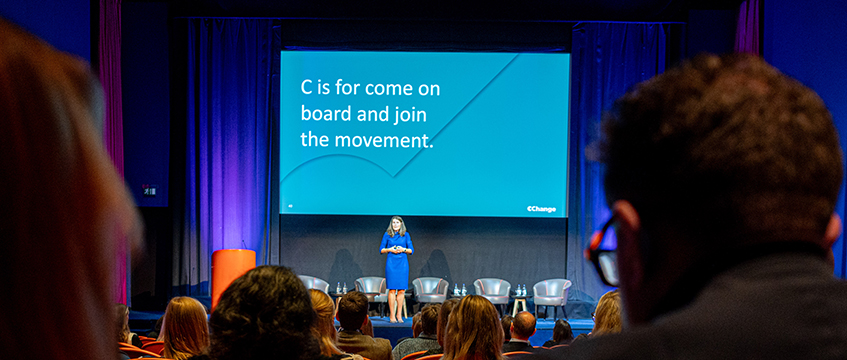Should we keep building? As far as questions posed at real estate events go, this one is pretty arresting.
On one level it is nuanced. What do we mean by ‘building’? How can traditional development shift and evolve to better serve the world we live in today? What elements of what has always been done can be channelled into a different way of creating spaces and places?
But there is also a searingly black and white aspect to it. The question ‘should we just stop building new buildings’? cries out for a binary “yes” or “no” response.
This was just one of the complex issues speakers delved into at EG’s ESG Summit. And they tackled it head on.
Development in doubt?
“This is not a challenge we should avoid,” said Montagu Evans partner Simon Rogers before calling for clarity and a clear framework from government to help the real estate sector navigate the paradigm shift that has seen building retention, rather than demolition, become the starting point for decisions around development.
The consensus in the room was that, while having the goal of retention as the starting point for development, a blanket avoidance of demolition or rebuild would be damaging, both for the sector and for the future of the built world.
Landsec’s head of sustainability Alexia Laird called for value judgements to avoid developing “carbon tunnel vision”, as while some inherited buildings are no-brainers for retrofit, there are more awkward projects where quality of space and flexibility “just isn’t there”.
She added that keeping an open mind around the right development option for buildings on a case-by-case basis would be crucial to ensure that – as per the theme of the day – carbon does not kill development.
The good news is that speakers and experts on stage throughout the day were unanimous in the opinion that, while carbon poses a challenge for development, it is very unlikely to toll its death knell.
If anything, it throws up a plethora of opportunities for those who decide to get on board and embrace the evolution. From new ways of working to cost and energy-saving technologies and emerging skills sets, decarbonising the built world is as much about hope and progress as it is about systemic changes around the way the industry operates.
Positive opportunities
A case in point, Faye Dasi-Sutton, ESG and sustainability manager at Far East Consortium Development, the Hong Kong-based investor well known for delivering ecologically positive projects, spoke on the biodiversity net gain legislation due to come into force in February.
Under the legislation, developers will be required to leave sites with 10% more biodiversity than when they started. Dasi-Sutton conceded that this would put additional pressure on the sector but was quick to point out the opportunities these sorts of changes present.
Not just for the planet, but for the industry. They will create a new variety of jobs, as we will need new areas of expertise and skills. This will inject fresh knowledge into the sector and educate developers on what can be done differently.
Then there are the opportunities that technology and innovation bring to the table when it comes to changing the way the industry operates.
Data provided by companies like Utopi, an ESG tech company focussed on multi-tenanted real estate, can lift the lid on trends and behavioural patterns which give insights into building’s energy performance – and therefore cost outlays – that were previously non-existent.
For asset owners and managers looking to reduce costs, and of course the negative impact their buildings and portfolios have on the planet, the information is there to be mined.
Mindset shifts
As Tanja Growth, director of Carbon Limiting Technologies said on a panel discussing how additional renewable energy can be generated across the built environment, all the technology we need to make a difference to the way we develop, build, consume and live is already there. The problem is not the resources available, but the collective mindset shift to implement it.
This was a point echoed both by the Summit’s opening keynote speaker, the Urban Land Institute’s Europe chief executive Lisette Van Doorn, and by the new chief executive of the UK Green Building Council Smith Mordak, who took to the stage for a fireside chat.
For Van Doorn, there is still much to be done around mindset shift. She highlighted that the onus for a change of approach is not on the real estate sector alone. We need a reorganisation or consolidation of standards, she said, pointing to just how many there are to contend with. “We need to cut through the noise,” she added.
The UKGBC’s new chief executive brought to the fore a theme that ran through the entire Summit. Time.
“Shit is really hitting the fan,” Mordak said. “We all need to muck in because we are running out of time.”
The question we should all be asking then is perhaps less around the death of development and more around how we make the best use of our time on earth.
For years, the real estate sector has been under increasing pressure to embrace change and innovation.
Not just to be ahead of the times and at the forefront of invention and advancement –although that certainly doesn’t hurt – but to address the cataclysmic climate and social issues the world is facing and will continue to face long after we have all shuffled off our mortal coils.
The time to make a difference is now.
To send feedback, e-mail emily.wright@eg.co.uk or tweet @EmilyW_9 or @EGPropertyNews












